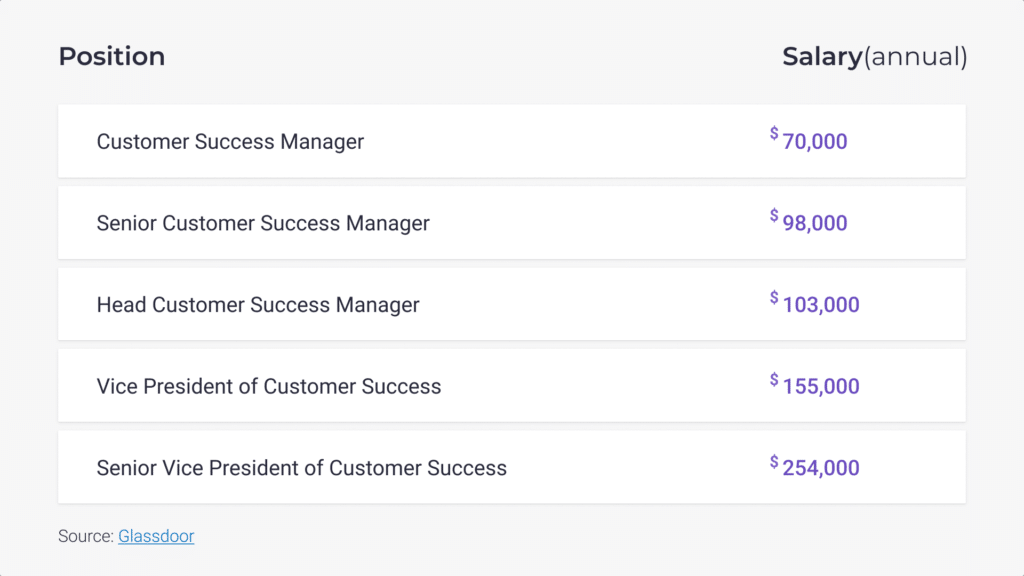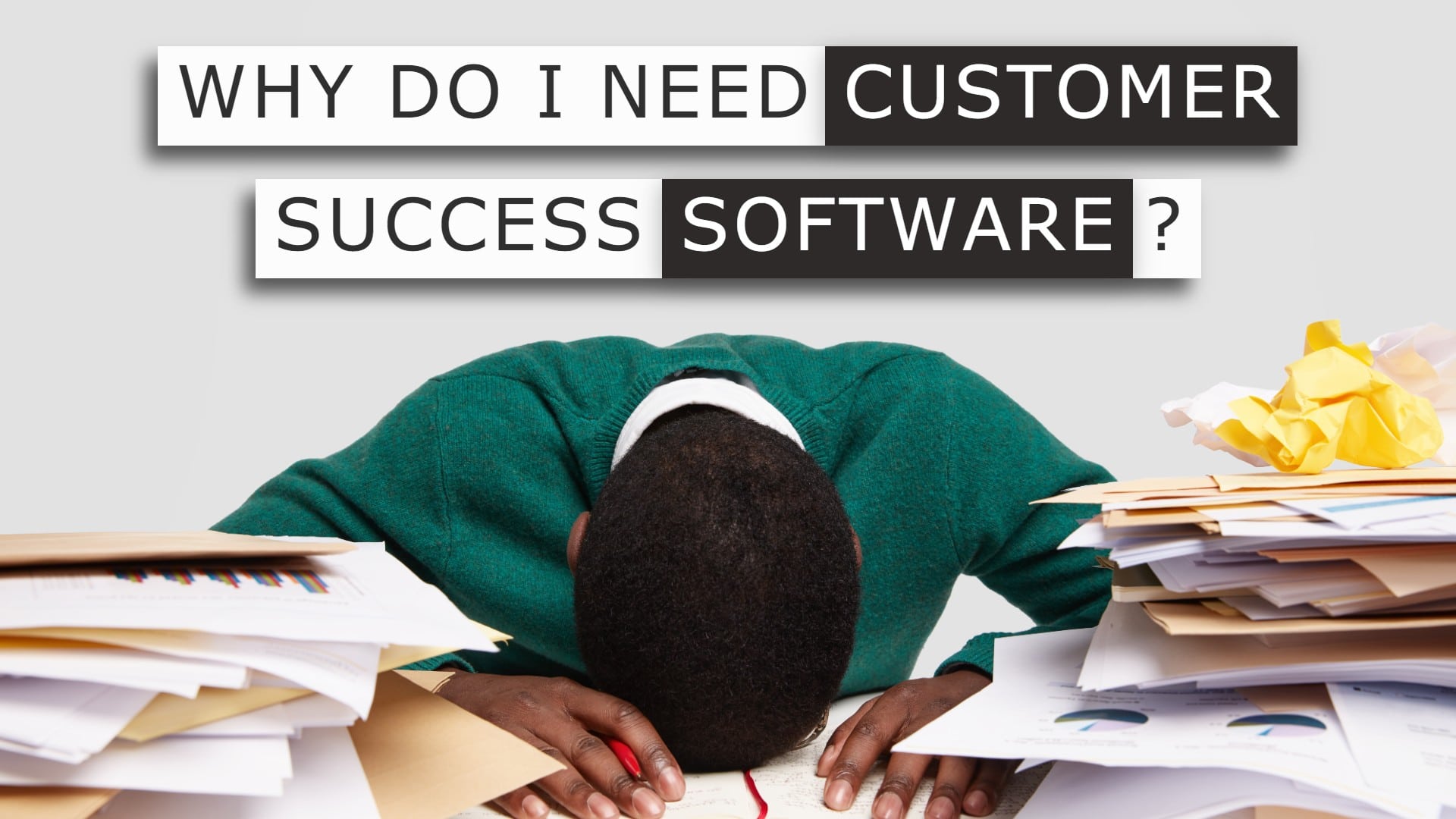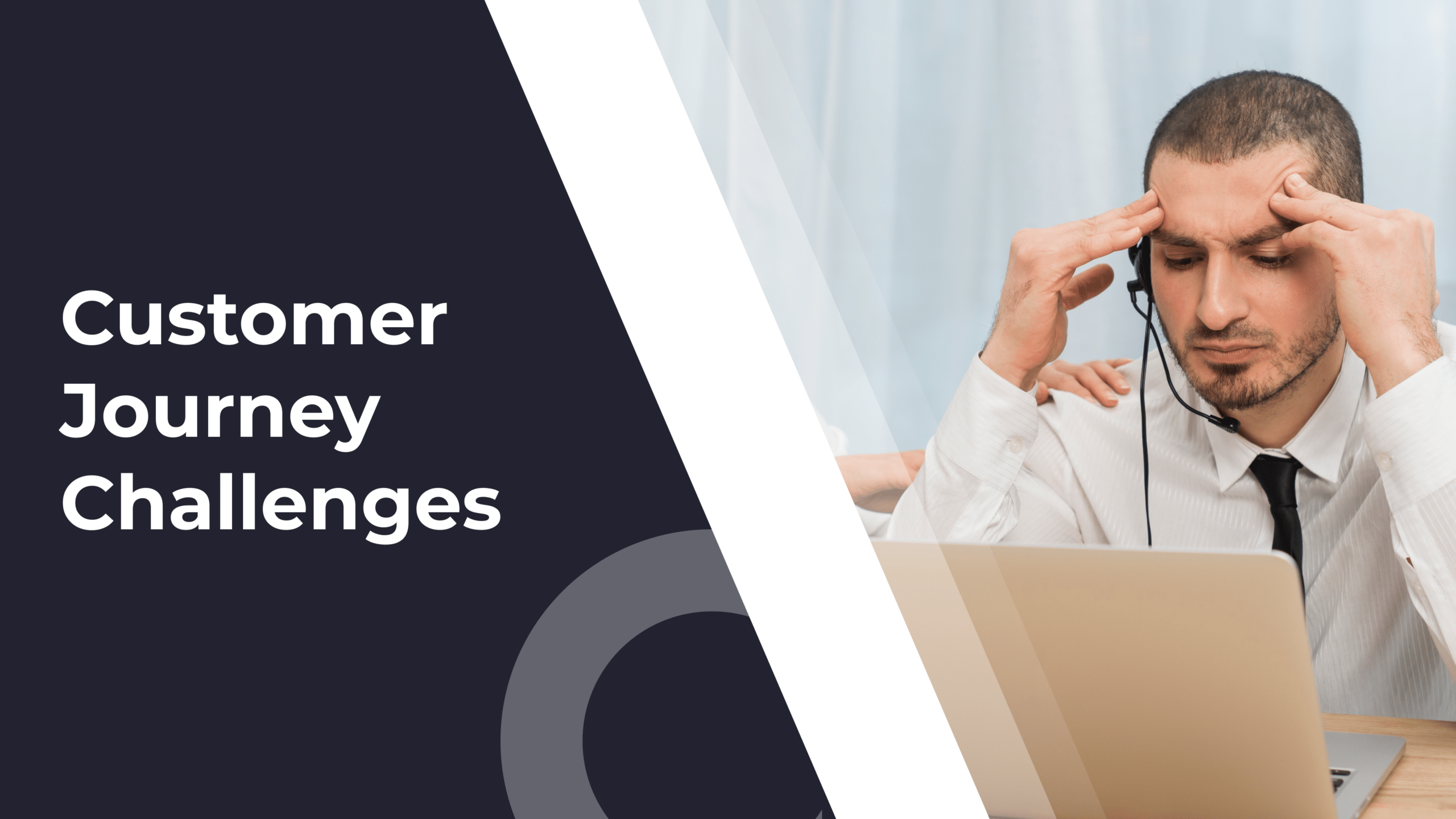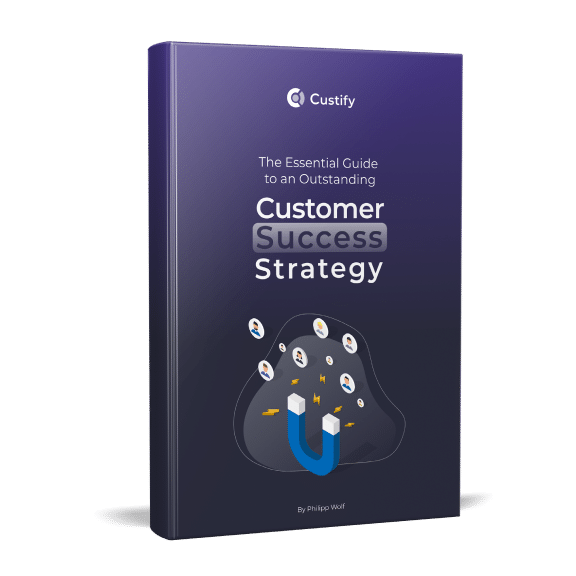Customer Success is a relatively new role that has emerged with the movement towards subscription-based software models. Although CS can be successfully implemented in other types of businesses as well, it’s most frequently tied to SaaS businesses.
As the SaaS industry is currently flourishing (it’s projected to experience its largest annual growth between 2021 and 2022, reaching a value of $171.9 billion), the demand for Customer Success Managers is also steadily increasing (currently, CSM is one of the fastest-growing job roles). So, because of this, you might ask yourself: ‘is Customer Success a good career?’. Not to be biased here but, given these numbers, I think it’s a great career path.
However, I think a more important question would be whether Customer Success is a great career for you. In this article, I’ll share some behind-the-scenes information that should help you make this decision for yourself.
The Main Aspects of a Customer Success Career
1. Job Responsibilities & Career Path
Customer Success Managers are often confused with other roles, usually Account Managers or Customer Support, because, especially for early-stage startups, these roles are not yet clearly defined (most of the time, they are handled by a single person who wears multiple hats). As the business grows, however, companies start hiring more people and building different teams, so it becomes more evident what each department should be in charge of.
For CSMs, their main responsibilities revolve around:
- onboarding: one of the main responsibilities of a CSM is to get new customers onboarded and hooked on the product as fast as possible. This includes configuring their accounts, helping them import data from other tools, and training users on how to use the product – basically anything necessary to get them to start using the product in their day-to-day business. Because this is a crucial part of the customer journey and it’s essential to get it right, some CSMs specialize in onboarding exclusively.
- education/enablement: beyond onboarding, CSMs should ensure customers know how to best use the product throughout their journey as a customer. Depending on each product’s unique characteristics, this can require holding training webinars, writing knowledge base articles, or creating email flows that showcase how to best use specific features (this is especially helpful for new features).
- churn reduction, the improvement of retention and renewal rates: churn is the main reason Customer Success as a job role emerged in the first place, so preventing it is a core responsibility for CS reps. The key here is to be proactive rather than reactive, continuously analyze all aspects of the customer journey, and identify and eliminate all possible causes of churn.
- adoption: this is specific to complex products and organizations that have to significantly change their internal processes in order to adopt a new product. Change Management is a discipline on its own and can make up a different department, but CSMs should still be able to offer assistance and help customers rethink their day-to-day activities to suit the new workflow with the product they’re adopting.
- account management: CSMs are, by no means, Account Managers; still, they should be able to identify key stakeholders and build multiple relationships within the client company. It’s vital that they understand the product they are representing inside and out and are able to make connections between a client’s pain points and how their product could solve those pains.
- support: again, Customer Success is not Customer Support. However, helping customers solve small issues is key to enabling them to become successful. If you want to dive deeper into this subject, there’s a dedicated article on our blog on how Customer Support data can help CSMs better understand the customer journey.
- upselling and cross-selling: traditionally, this is a job for Account Managers or Sales teams. But CSMs can help tremendously by keeping customers happy, increasing their loyalty, ensuring the ROI they get by using the product grows over time, etc.
- offboarding: not all is lost when the customer hits the unsubscribe button; an offboarding strategy is just as important as an onboarding one, and, when done right, it can actually help you save customers.
As you can see, there are a plethora of skills one should acquire in order to become a Customer Success Manager. So how do you acquire them? One way is to start with CS courses and certifications. Another way would be to build on top of the skills you already have – many professionals in customer-facing roles such as Sales, Customer Service, or even Product Management successfully switch to Customer Success and find their past experience very helpful.
Don’t despair if all this seems like a lot to take on – with the right Customer Success tool, you can automate most of the monkey tasks (usually time-consuming analyses and sending emails), so you can spend more time providing value to customers. Sky’s the limit with a can-do, positive attitude.
Regarding career growth in the Customer Success niche, as I’ve previously mentioned, this role is still new, so no one can say for sure how it will evolve. Still, as more SaaS businesses hire Customer Success professionals and teams grow, the need for a role that supervises all CSMs becomes more prominent.
Whether that role will be Director of Customer Success, Vice President of Customer Success, or Chief Customer Officer remains to be seen, but one thing’s for sure – there are plenty of growth opportunities if you choose to stay in the CS field. The more you broaden your knowledge, the higher up the management chain you can go (similar to other fields).
You could even make it to CEO! A prerequisite for a good CEO is a thorough understanding of the organization and how different pieces fit together, and Customer Success Managers have that down to a T.
The time it will take you to get from the lowest position in the CS Department to the highest one available depends on each organization and how many different intermediary management levels there are. For smaller SaaS teams, there may only be a few CSMs who report to a manager who then directly reports to the CEO. For enterprises, you could have a dedicated CS Department with a Department Head for each product and then move up in the hierarchy as regional director until you reach the highest position that has the global overview. Usually, you can expect a pit stop of 2-3 years at each intermediary management level.
2. Salary Expectations by Position
The actual salary you can expect depends on many factors such as company size, previous experience (whether within the same company or somewhere else), region, industry, etc. But here’s an overview of what companies usually pay:

3. Personal Journey and Growth Opportunities
If you love working with people and are driven by results, Customer Success is a great career path for you – it’s a very rewarding job, with lots of growth opportunities in terms of personal growth, learning, courses, and professional development. At the same time, working to help customers succeed is a very fulfilling role, and the proactive approach is usually less stressful than the reactive approach of Customer Support positions.
The best part about this job, in my opinion, is the flexibility and versatility of skills it offers – you could switch to Customer Success coming from a different department (for example, Perry Krug, Customer Success Manager at Couchbase, spent 10 years working with customers in various Sales Engineering roles before he finally switched to a customer success job), but, at the same time, the skills of a CSM are highly transferable to other positions (such as Sales, Professional Services, or Training) if you decide that this role is not a great fit for you.
Bottom Line: Is Customer Success a Good Career?
Now, taking all this information into consideration, it’s time for the verdict: is Customer Success a good career?
My short answer is ‘absolutely!’
My long answer is still yes, but it comes down to the skills you have, those you want to develop, and whether working with customers is a great fit for you personally.
As a CSM, you should be a people person – you should love interacting with people and be patient and empathetic when you’re helping them solve an issue. There will be many situations when customers will be angry; then, it’s important to keep your cool and not take things personally. Investing in developing your soft skills will get you far.
But more than anything else, you should have passion for your job and a desire to learn more, to always better yourself. Customer Success is a crucial role that requires many different skills. For example, being able to understand how people think (this is where studying psychology comes in handy) will help you improve the onboarding process while having great presentation and/or copywriting skills will help you educate your customers (as I’ve mentioned before, CSMs can also hold webinars and write knowledge base articles).
Once you start your new position, check out our guide on how to craft an effective Customer Success strategy.
Make Your Life Easier with a Good Customer Success Platform
Customer Success recruiting is a hot topic right now as many SaaS businesses are fighting to hire the best CSMs. So if you think this might be a good career choice for you, there’s no time better than now to start polishing your skills. Even if you don’t have explicit CS background, as long as you have the right attitude and the passion for being trained for the role, there’s no doubt you will succeed.
You should also consider learning how a Customer Success platform can help you in your day-to-day job. At Custify, we know from our own experience how many things Customer Success Managers have on their plate. This is why we’ve built our product in a way that enables you to stay focused on your customers and not on repetitive, boring tasks that can be done via automation.
Want to give it a try? Request a demo




